
Le Figaro is a French daily morning newspaper founded in 1826. It is headquartered on Boulevard Haussmann in the 9th arrondissement of Paris. The oldest national newspaper in France, Le Figaro is one of three French newspapers of record, along with Le Monde and Libération.

The Observer is a British newspaper published on Sundays. It is a sister paper to The Guardian and The Guardian Weekly, whose parent company Guardian Media Group Limited acquired it in 1993. First published in 1791, it is the world's oldest Sunday newspaper.

Clement William Scott was an influential English theatre critic for The Daily Telegraph and other journals, and a playwright, lyricist, translator and travel writer, in the final decades of the 19th century. His style of criticism, acerbic, flowery and carried out on the first night of productions, set the standard for theatre reviewers through to today.

The Argus was an Australian daily morning newspaper in Melbourne from 2 June 1846 to 19 January 1957, and was considered to be the general Australian newspaper of record for this period. Widely known as a conservative newspaper for most of its history, it adopted a left-leaning approach from 1949. The Argus's main competitor was David Syme's more liberal-minded newspaper, The Age.
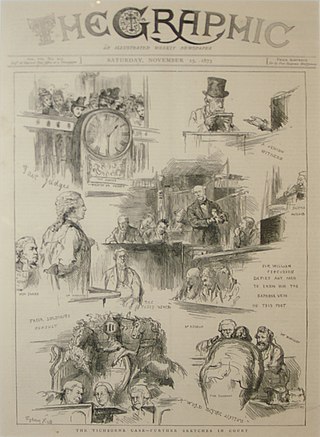
The Graphic was a British weekly illustrated newspaper, first published on 4 December 1869 by William Luson Thomas's company Illustrated Newspapers Ltd. Thomas's brother Lewis Samuel Thomas was a co-founder. The premature death of the latter in 1872 "as one of the founders of this newspaper, [and who] took an active interest in its management" left a marked gap in the early history of the publication. It was set up as a rival to the popular Illustrated London News.
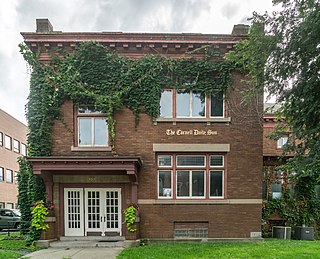
The Cornell Daily Sun is an independent daily newspaper published in Ithaca, New York by students at Cornell University and hired employees.
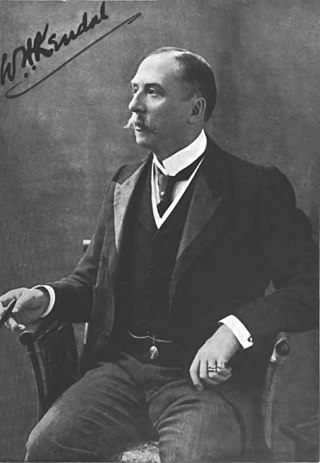
William Hunter Kendal was an English actor and theatre manager. He and his wife Madge starred at the Haymarket in Shakespearian revivals and the old English comedies beginning in the 1860s. In the 1870s, they starred in a series of "fairy comedies" by W. S. Gilbert and in many plays on the West End with the Bancrofts and others. In the 1880s, they starred at and jointly managed the St. James's Theatre. They then enjoyed a long touring career.
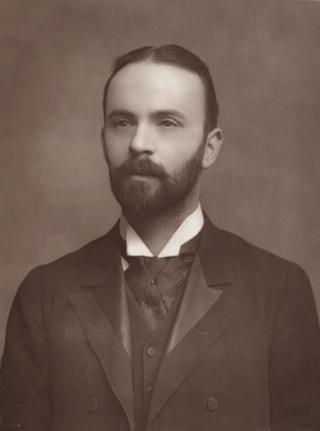
Arthur Bingham Walkley, usually known as A B Walkley was an English public servant and drama critic. As a civil servant he worked for the General Post Office from 1877 to 1919, in increasingly senior posts; he did not seek the highest official positions, preferring to leave himself time and energy for his parallel career as a drama critic. As a journalist he worked with Bernard Shaw on The Star at the beginning of his newspaper career; he is probably best known for his twenty-six years as theatre critic of The Times. He retired from the Post Office in 1919, and for the last six years of his life concentrated wholly on writing.

Fun was a Victorian weekly humorous magazine, first published on 21 September 1861 in competition with Punch.

The Boston Evening Transcript was a daily afternoon newspaper in Boston, Massachusetts, published for over a century from July 24, 1830, to April 30, 1941.
Rolfe Arnold Scott-James OBE, (1878–1959) was a British journalist, editor and literary critic. He is often cited as one of the first people to use the word "modernism" in his 1908 book Modernism and Romance, in which he writes, "there are characteristics of modern life in general which can only be summed up, as Mr. Thomas Hardy and others have summed them up, by the word, modernism".

James Henry Gerard Mortimer was an American-born British chess player, journalist, and playwright.

Edward Litt Leman Blanchard, often referred to as E. L. Blanchard, was an English writer who is best known for his contributions to the Drury Lane pantomime. He began writing plays and other literature to support himself as a teenager after his father died. A succession of pantomimes supplied by him to one or other of the minor theatres, under the nom de plume of Francisco Frost, soon acquired for him a reputation as the contriver of these dramatic whimsicalities. He soon became a prolific creator of dramas and eventually gained critical acclaim for his works. He also served as a newspaper drama critic and mentored other writers.

The Sporting Times was a weekly British newspaper devoted chiefly to sport, and in particular to horse racing. It was informally known as The Pink 'Un, as it was printed on salmon-coloured paper.

Faustin Betbeder was a French illustrator, caricaturist and prototypical comics artist.

George Hogarth WS was a Scottish lawyer, newspaper editor, music critic, and musicologist. He authored several books on opera and Victorian musical life in addition to contributing articles to various publications.
The St James's Gazette was a London evening newspaper published from 1880 to 1905. It was founded by the Conservative Henry Hucks Gibbs, later Baron Aldenham, a director of the Bank of England 1853–1901 and its governor 1875–1877; the paper's first editor was Frederick Greenwood, previously the editor of the Conservative-leaning Pall Mall Gazette.
The Port Adelaide News was a newspaper published in Port Adelaide, South Australia between 1876 and 1933 with various sub-titles, several breaks in publication and periods of bi-weekly publication.
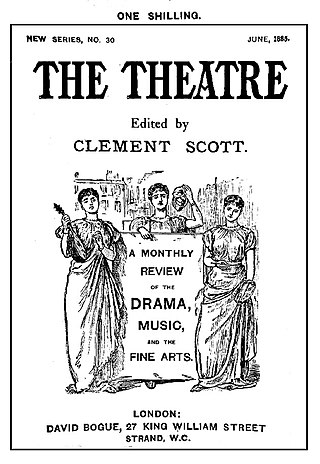
The Theatre was a magazine published in London between 1877 and 1897.